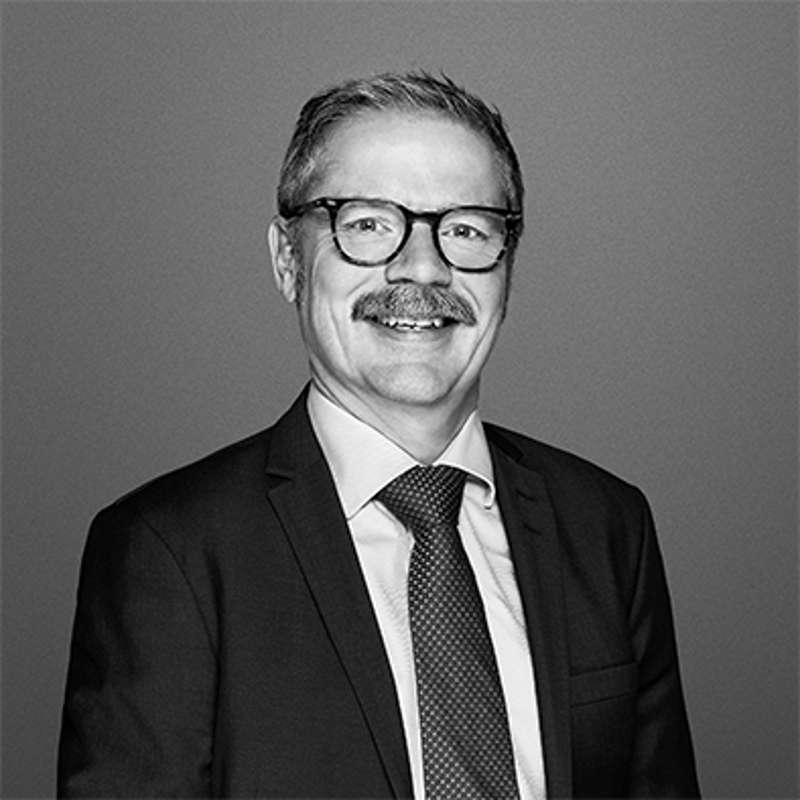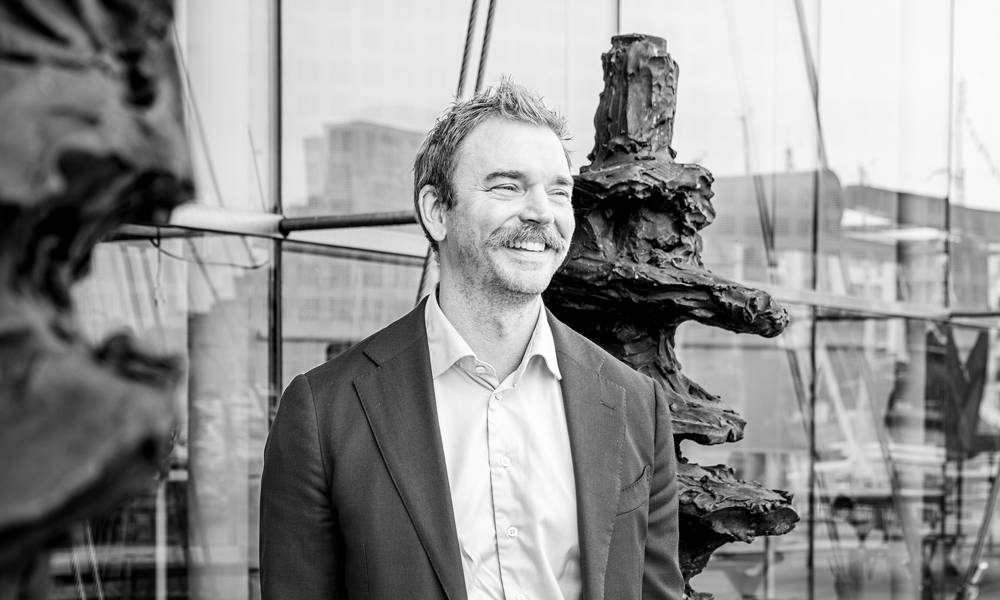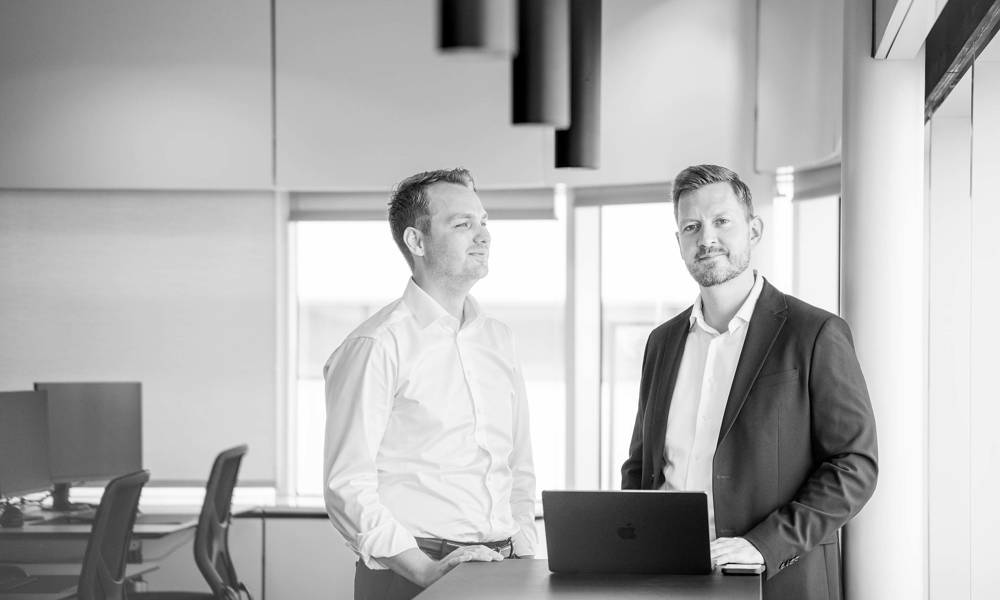A long-awaited digitalisation of the finance function
Saying goodbuy to Excel had been on the to-do list for several years for Anne Cecilie Guneriussen, who is CFO of the Norwegian group of Toyota and Lexus dealers, Bauda. In 2025, it finally happened when she was introduced to a cloud financial planning tool tailored to the automotive industry's specific conditions. The result? Less vulnerability to errors, better insight into key figures and, not least, increased efficiency.
When spreadsheets and processes need to be discussed and optimised across Scandinavia, the distance from flat Denmark to mountainous Norway is not far. Because regardless of nationality and nature, the challenges in the finance function are often similar. So is the language. Almost, at least.
"It wasn't a problem that it was a Danish consultancy helping us. But once in a while we had to switch to English to make sure we didn't misunderstand each other," Anne Cecilie Guneriussen laughs over the video connection from her office in Oslo.
She is finance director of the automotive group Bauda, which accounts for almost half of all sales of Toyota and Lexus driving on Norwegian license plates. And when, after several years of attempts, she was facing a digitalisation of the finance function and looking for the right system that could handle the special needs and challenges of financial management in the automotive industry, she left no stone unturned.
"We examined five to six systems, and there really weren't any of them that I felt gave us what I was looking for. I felt they became too cumbersome. But then I got a tip from Toyota Norway," she says.
The tip was about the financial planning tool Workday Adaptive Planning, in which Basico has developed a special solution specifically designed to meet the automotive industry's complex challenges with detailed financial planning. And in spring 2025, a couple of Danish finance consultants went to Oslo to help Bauda build a scalable, digital solution that has saved Anne Cecilie Guneriussen and her team many hours and manual tasks.
Out of the Excel regime
The story of Bauda and their challenges with scenario planning, budgeting and forecasting has its roots in a desire to say goodbye to Excel.
“Excel is brilliant if you're creating spreadsheets for your own use. But as soon as you need to build complex financial models across business areas, it's not optimal. The challenge was that we were doing budgeting and forecasting in Excel, and it was vulnerable. Because if someone made an error in a spreadsheet, we couldn't always consolidate it in other spreadsheets.”
And there were plenty of Excel spreadsheets – in fact, countless of them. The Bauda Group consists of 20 Toyota dealers, six Lexus dealers and two damage centres distributed across seven companies. Together, the group budgets for over 7 billion Norwegian kroner, and with so much money in circulation, it's important to be able to trust your figures.
"We didn't have a good tool for making projections and forecasting. So we had many manual checks to ensure it was done correctly. Nevertheless, every year we experienced some unexpected errors because changes had been made, or because someone had forgotten to carry out certain tasks. This meant we didn't get warnings about the errors, and they therefore ended up in the budget for the coming year. The consequence was that we had to work through the entire next year with a budget that already contained errors, which leads to further knock-on errors throughout the year," she says and establishes the scale of manual tasks in the large group:
"Because we're a group with many companies, we had to do the same manual work in the budgets for all the companies."
Anne Cecilie Guneriussen has been administration and finance director at Bauda since 2015. Prior to that, she worked as finance manager for Toyota in Drammen, amongst other roles.
The need for flexibility and scalability
Budgeting and forecasting in the automotive industry is a challenging undertaking. It's a volatile market characterised by intense competition and changing conditions, and therefore there's a great need for flexibility in financial models.
"We often don't receive notice until late about how many cars we're supposed to sell the next year – often we don't get the figures from the importers until December. That's why we have to work with assumptions when we're preparing the budget for the coming year."
And in the same way, they in the group are dependent on the estimates being accurate from the dealers' side, the finance director explains.
"When we're making projections, we're completely dependent on our dealers telling us how many cars they think they can sell – and not what we say they should sell. Those are two completely different things. When we, for example, sit at the top and say they should sell 8,000 of a specific model, whilst they say they think they can sell 8,400 – that difference is a great deal of money for us and will have a significant bottom-line effect."
And in the solution from Workday Adaptive Planning, Anne Cecilie Guneriussen found precisely the scalability and flexibility she'd been looking for. The solution has both top-down and bottom-up functionality, which in concrete terms means that both finance and the business can provide input to the budget.
And that has been a particularly important function for Bauda, because it provides the necessary flexibility in their work.
"It's important that we can both enter an overall figure at the top, but also allocate figures directly to each individual company, department or location. When we work with budgets, it most often happens from the top down. But when we work with projections, it's often reversed; here we get input directly from the individual units, which is then collected and gives an overall result at the top. It's important that the system supports both workflows," she says.
Be precise about requirements and use time wisely
With a couple of Danish consultants in Norway, the collaboration went well from the start, according to Anne Cecilie Guneriussen. And she particularly emphasises that the physical meetings with the consultants that she and her team had in the design and scoping phase were very beneficial.
Having the right chemistry with your consultants is key to the project becoming a success. Both the personal chemistry and, equally important, the right insight into the automotive industry.
"You have to understand the business before you can advise on good solutions. It's about being able to quickly grasp our challenges whilst being ready to come up with solution proposals. Because even though we as a customer may have a clear idea about how we want things, it's not always the best solution. That's why it's valuable when the consultants dare to suggest alternative solutions that may prove to be better, and we found that Basico's consultants were good at that," she says, before mentioning a point she would do differently if she could. And there is a lesson in that.
"We found that it was sometimes a challenge to prioritise our own tasks between the meetings with Basico, and we would have liked to spend more time testing the functionality. We've taken that with us as an important learning. The process therefore ended up stretching a bit longer than we'd initially expected, and towards the end of the budget process, there were still some areas we would have liked to have had a bit better control of," says Anne Cecilie Guneriussen.
However, the budget process reached the finish line well and safely, and now she and her team are looking forward to planning towards 2026. And in a group that's constantly developing, it will also be an easier process in future for the finance function to merge new companies in when they acquire and expand. With the new system, they're assured that it will be a consistent process every time.
"We've achieved far greater security when we need to integrate companies in connection with mergers. Now it's much easier to handle changes in the structure directly in the system, rather than having to send different templates around and be uncertain about whether we're using the correct version. We now have complete overview and control of the group structure in a completely different way than previously," says a satisfied Anne Cecilie Guneriussen, before the video connection from Norway closes down.

Want to see the solution?

Are you also ready to say goodbye to Excel?
Then book a no-obligation demonstration. Our experience with implementations of Workday Adaptive Planning in the automotive industry ensures that you get a solution that is tailored to your specific needs and challenges. And we dare to promise that it will transform your financial planning from an administrative burden into a strategic tool.

 en
en
 da
da



